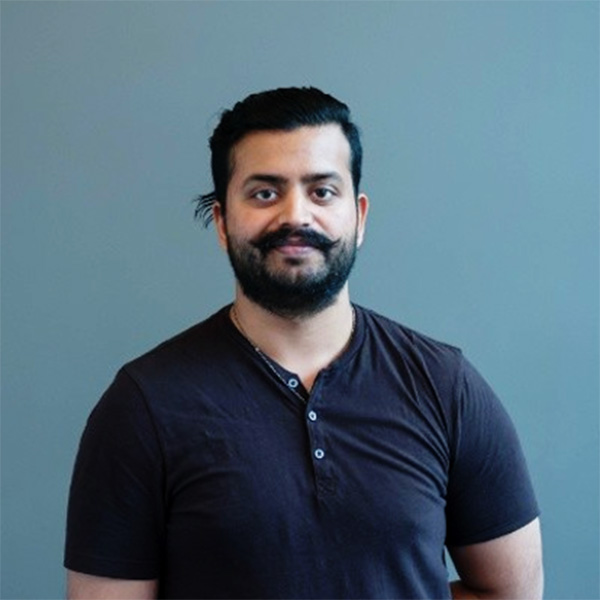Kanishk Sharan
MSCSE ‘18
What inspired you to choose the master’s in cybersecurity engineering program at UW Bothell?
My primary motivation to select UW Bothell was the coursework. I wanted a well-rounded, hands-on security curriculum that would cover different security aspects such as network, web application, mobile, and Cryptography—just to list a few. I looked up the cybersecurity faculty and followed their research work. All the professors have industry experience and affiliations with a lot of credible research work under their belt.

In addition to the coursework, there are security clubs run by students discussing contemporary security topics, breaches and organized CTFs (Capture-the-Flag) events that I found valuable.
Finally, one of the most critical factors that influenced my decision to choose the master’s in cybersecurity at UW Bothell was its super small class-size. My cybersecurity class in 2017-2018 consisted of only 7 full-time students.
Any big question you asked yourself before enrolling to make sure the program was the right choice for you?
Will I be skillful enough to meet the industry’s bar? As a professional with around four years of information technology experience, I realize the value of practical skill over theoretical knowledge. My objective from the program was to get solid hands-on skills to meet the ever-demanding industry requirements.
What would you say makes the program unique?
To summarize in a few sentences, the sheer hands-on approach of the coursework. Add to that professors who have extensive industry experience and are absolutely on top of their respective domains.
What are some highlights from your student experience?
Well, there are plenty. The entire UW Bothell staff is very approachable, kind, and easily accessible. The staff in general care about student’s welfare. Students have plenty of on-campus work opportunities. One of my most memorable experiences was teaching introductory programming coursework to undergrads as a TA (teaching assistant).
What courses did you enjoy the most, and was there an area of research that inspired you?
The course I enjoyed the most was also the one that challenged me the most: cryptography. A close second would be network security taught by Assistant Professor Geetha Thamilarasu. I was naturally drawn towards digital-crime investigations, and that class introduced me to computer forensics. I followed my inclination and completed my culminating project in computer forensics.
What were the most challenging and rewarding parts of being a student?
Being an international student away from home has its challenges. However, I cannot recall any specific challenge I faced as a student. The most rewarding part of my master’s program was when I successfully defended my culminating project.
Do you have any advice for future students?
Be proactive and reach out to the cybersecurity alumni network. Also, security is a very challenging field wherein your understanding increases with every new attack or breach. Please ensure that you read security articles and blogs daily to keep yourself updated. Focus on improving your hands-on skills by participating in CTFs and learning cloud security.
Where are you currently working, and what is your job title?
I am security engineer at Amazon Payment Services.
Do you feel the degree prepared and supported your professional career goals? How did this job opportunity come about?
Indeed. My degree provided a solid foundation, which ensured that I could break into the job market as an entry-level engineer.
Are there any other thoughts or advice you would like to share?
I am more than willing to answer any questions that one may have, so please feel free to reach out to me on LinkedIn. I read all my messages.